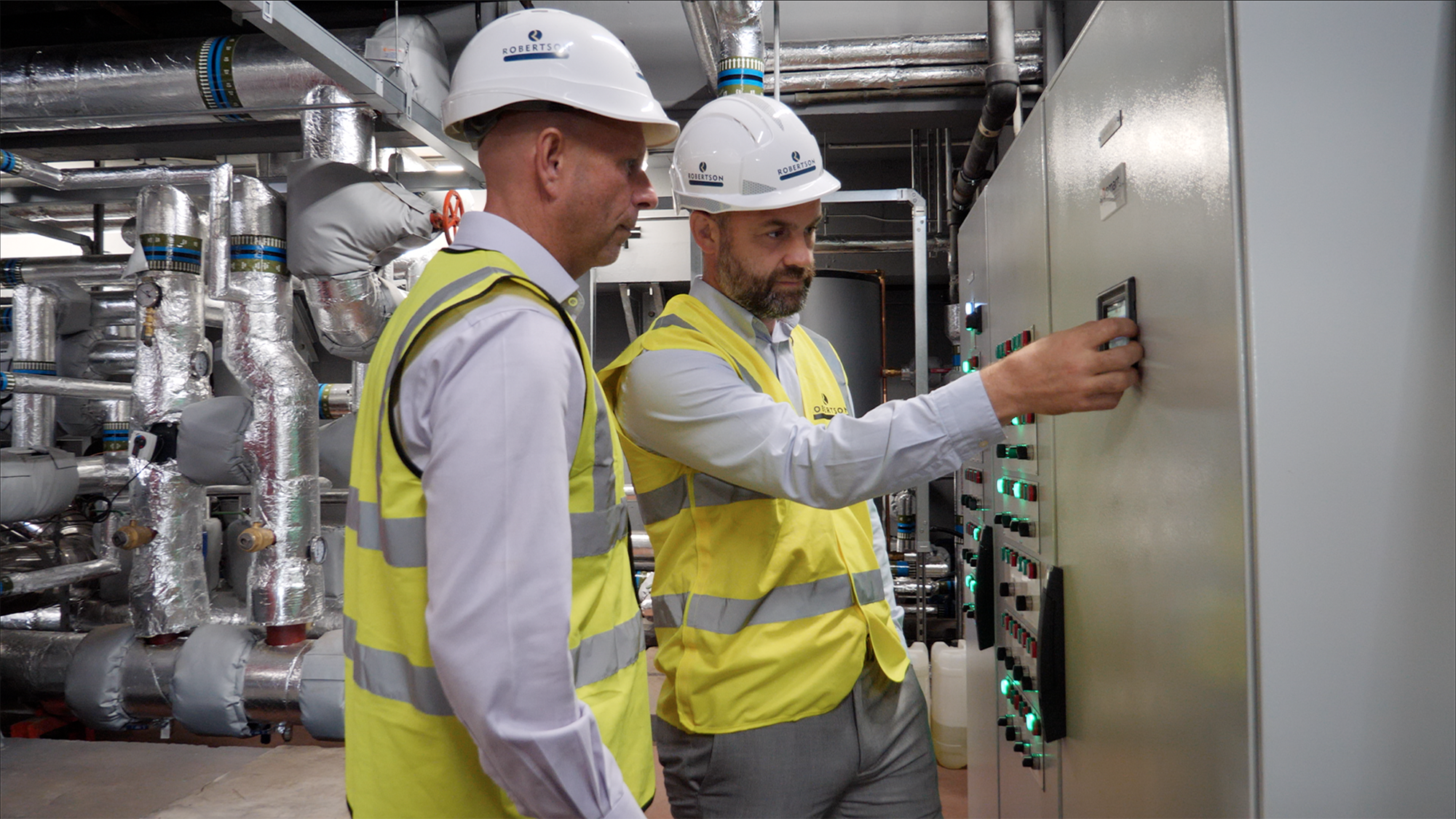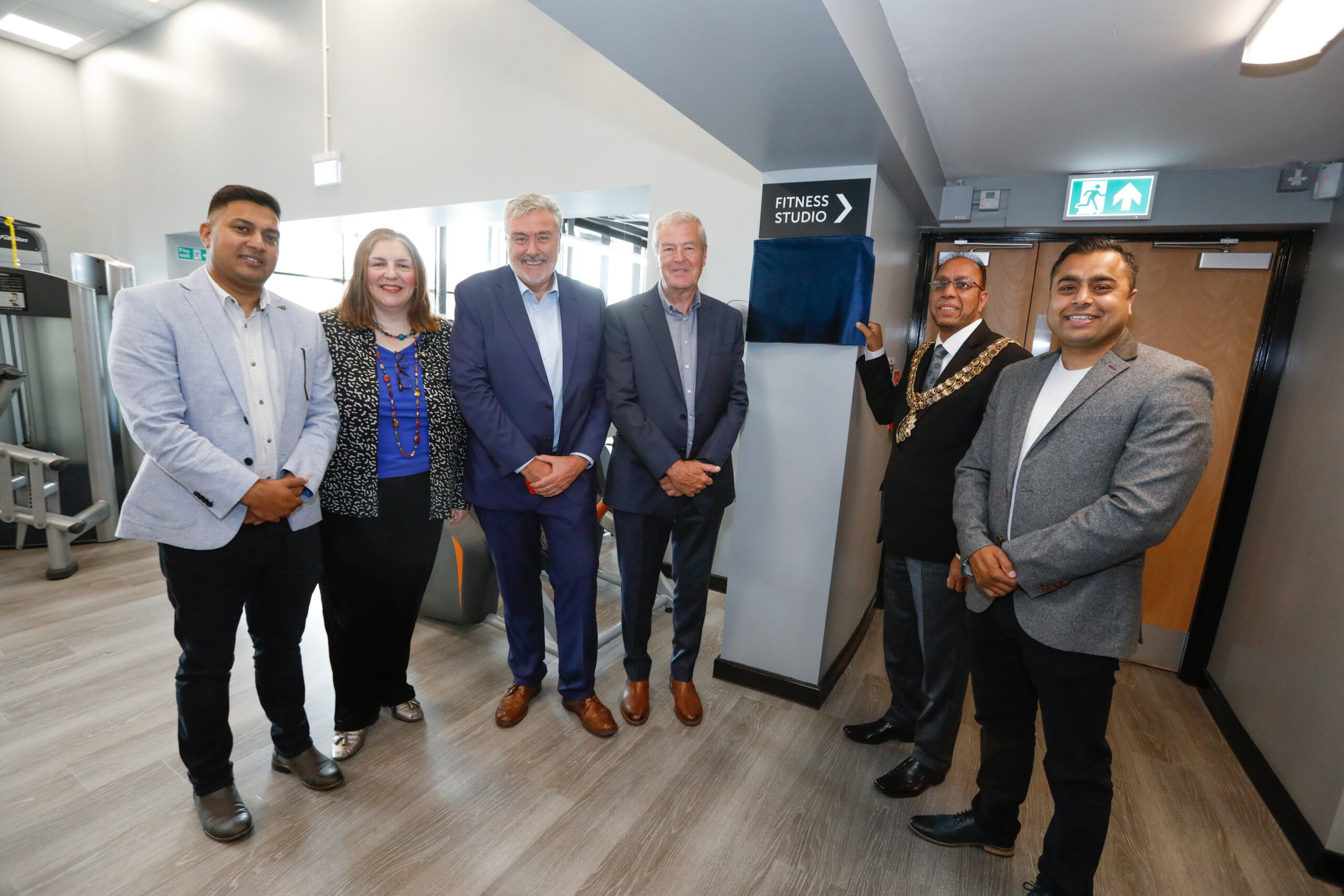Clear Futures led the project to rejuvenate and reconfigure a
key asset in Stockport Council’s workplace estate, the 1975-built Stopford House, spanning 72,500 square feet (6735m2) across six storeys.
Strategic support to ensure viability
Clear Futures undertook feasibility, business case and consultation with stakeholders to ensure the project would create additional value for Stockport’s public sector portfolio.
Through our network of expert consultants, we brought together Stockport Council and SpaceInvader Design, who carried out a full refurbishment of Stopford House, so that it could accommodate new ways of working. With sustainability at the heart of all Clear Futures’ partnerships, we brought our financial expertise to the table, successfully applying to the Public Sector Decarbonisation Fund, to invest in minimising future operational carbon and energy costs.
A flexible space for modern collaborative working
The key drivers for Stockport Council were affordability, flexibility and decarbonisation.
To ensure the new space would meet the needs of all users, Stockport Council needed an initial workplace strategy review, as well as assessment of the building’s fitness for purpose.
After a thorough examination of the building’s structure, services and space, SpaceInvader proposed a major upgrade to the building, to create a future-facing workplace for the council’s own team, as well as the best possible spaces and services for the community the council serves.
Consultations showed that the space planning had to accommodate new ways of working and empower people work in the best way, whether on their own, collaboratively in small teams, or with members of the public. The floor plans are flexible enough to be reconfigured on any day.
With public sector budgets under pressure, creating well-designed, flexible shared space means that certain areas, or an entire floorplate, can be leased to partners to generate revenue from the building footprint.
“Our Stopford House refurbishment project is an example of us investing in our workforce. We know that our people are our best asset – and having a great place to work is important for team morale, productivity and an organisation that has ambition running through its core. Stopford House is also part of our drive to become a more sustainable council, and the building was designed with the climate central to its features”
Cllr Malcolm Allan, Cabinet Member for Finance and Resources at Stockport Council, speaking to SpaceInvader design

Contact the team for more on strategic partnerships, decarbonisation or regeneration projects.
Prioritising low carbon in an older building
The strategy of modernisation through re-use and refurbishment vastly reduced the embodied carbon of the project, compared with building anew. SpaceInvader’s design made the most of the building’s existing brutalist architecture while seeking every possible way to re-use the building’s fabric with a less-is-more, circular economy approach, adding interventions only where necessary.
Recognising the environmental importance of retrofitting was a key net zero goal, but working with an older building brought challenges.
M&E consultant, Cundall, exposed the thermal mass of the building to passively maintain comfort levels, reducing reliance on comfort cooling. Any further cooling was restricted to high occupancy meeting rooms only, to reduce ongoing operational carbon.
A complete retrofit of renewable technologies would be challenging, but the team designed a system with air source heat pumps to complement biomass boilers, reducing reliance on existing natural gas boilers. Also, windows were replaced, improving thermal performance and increasing natural ventilation provision, to form part of a mixed mode ventilation system.
One whole floor was furnished using existing desks and some existing furniture was also re-covered to give a new lease of life.
Materials and products were specified for carbon neutral manufacturing, recycled content, end-of-life recycling schemes, while 285 items of existing furniture were repurposed. Minimal fixed new furniture and fittings was used, to maximise flexibility of the layout.
Project outcomes
Community support
32 pieces of furniture were donated to Stockport Race Equality Partnership, as part of a community refurbishment carried out by Overbury and other companies, covering over 687 volunteer hours.
Speaking to fit out and refurbishment specialist, Overbury, James Kington, Strategic Head of Estates and Asset Management, Stockport Council said:
“We invested in Stopford House because it was a key council asset. It was really important that we were able to show green credentials, but not greenwashing – actual accountable measures that show that this building is more environmentally sound than when we started.”
Talking to delivery partner Overbury, Stockport Council outlined the strategy for rejuvenating this asset.
Related service – decarbonisation
Find out more about how our long-term strategic approach supports you on the roadmap to meet your net zero goals, including heat decarbonisation plans, decarbonisation programmes and asset rationalisation.
Find out more
Explore our strategic partnerships
Clear Futures works strategically with all of our partners to help develop the right path forward to meet the priority goals for their community. This flexible, tailored approach, working over the long term, is at the heart of all our partnerships.
Find out more


